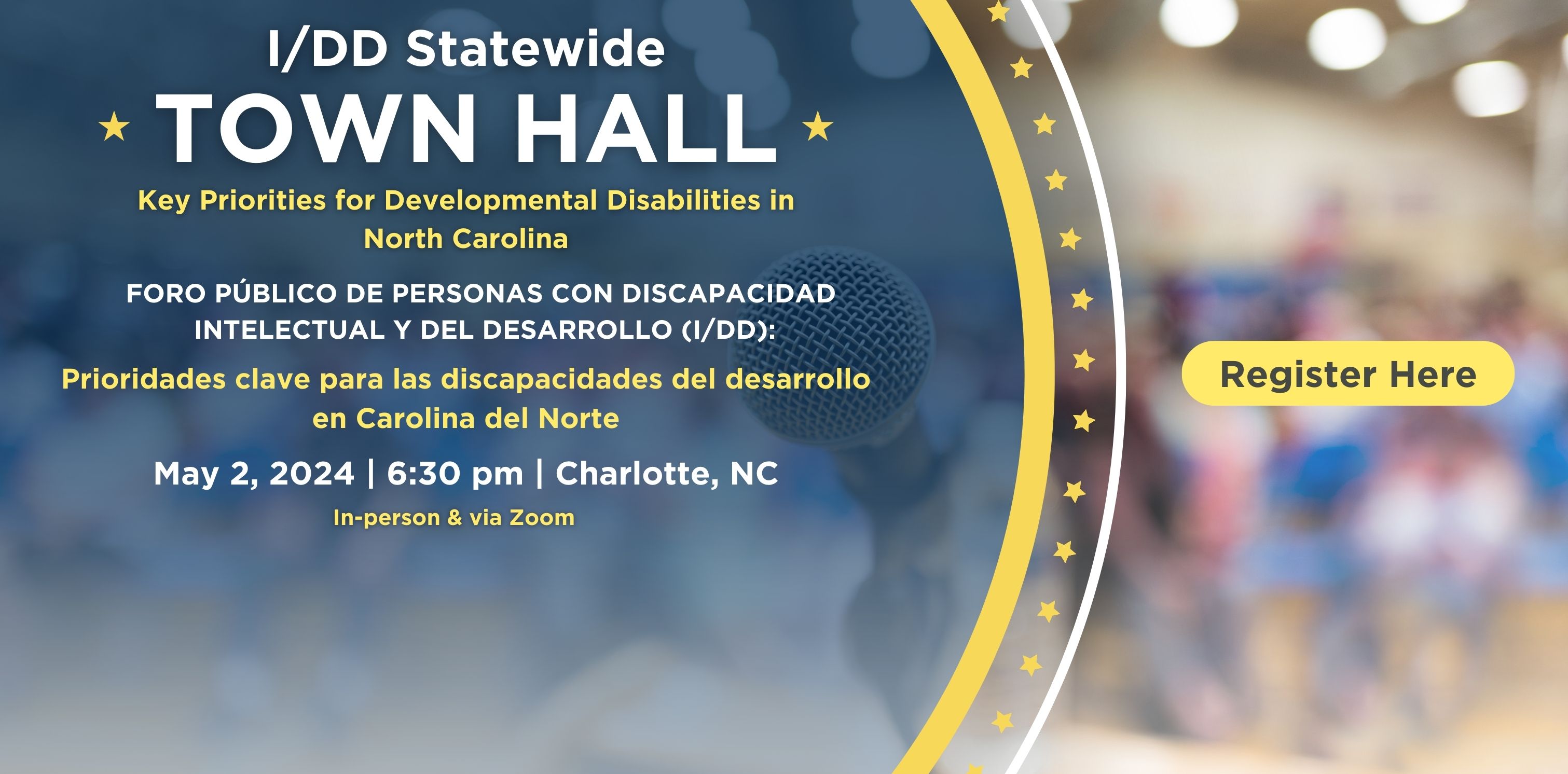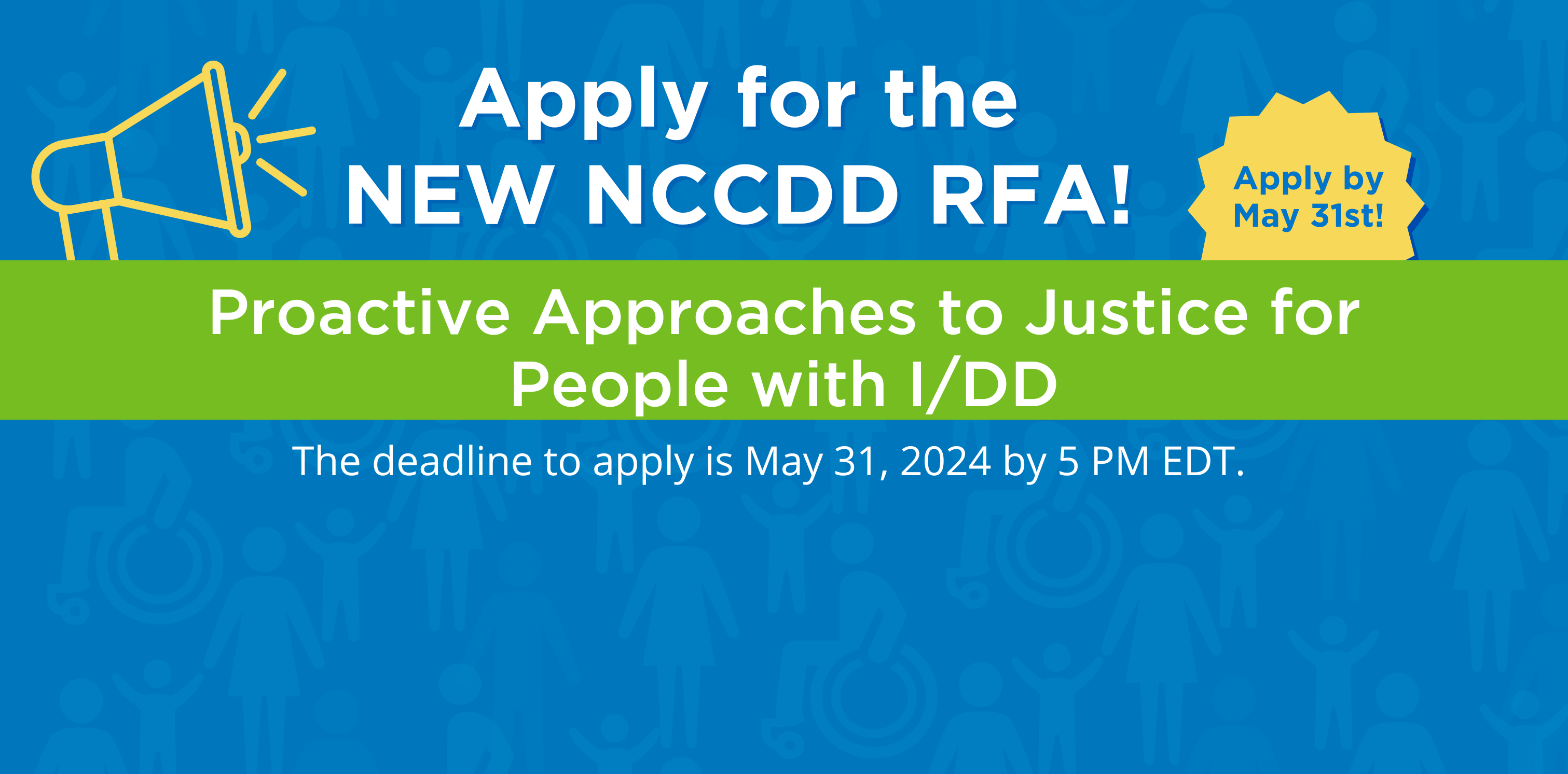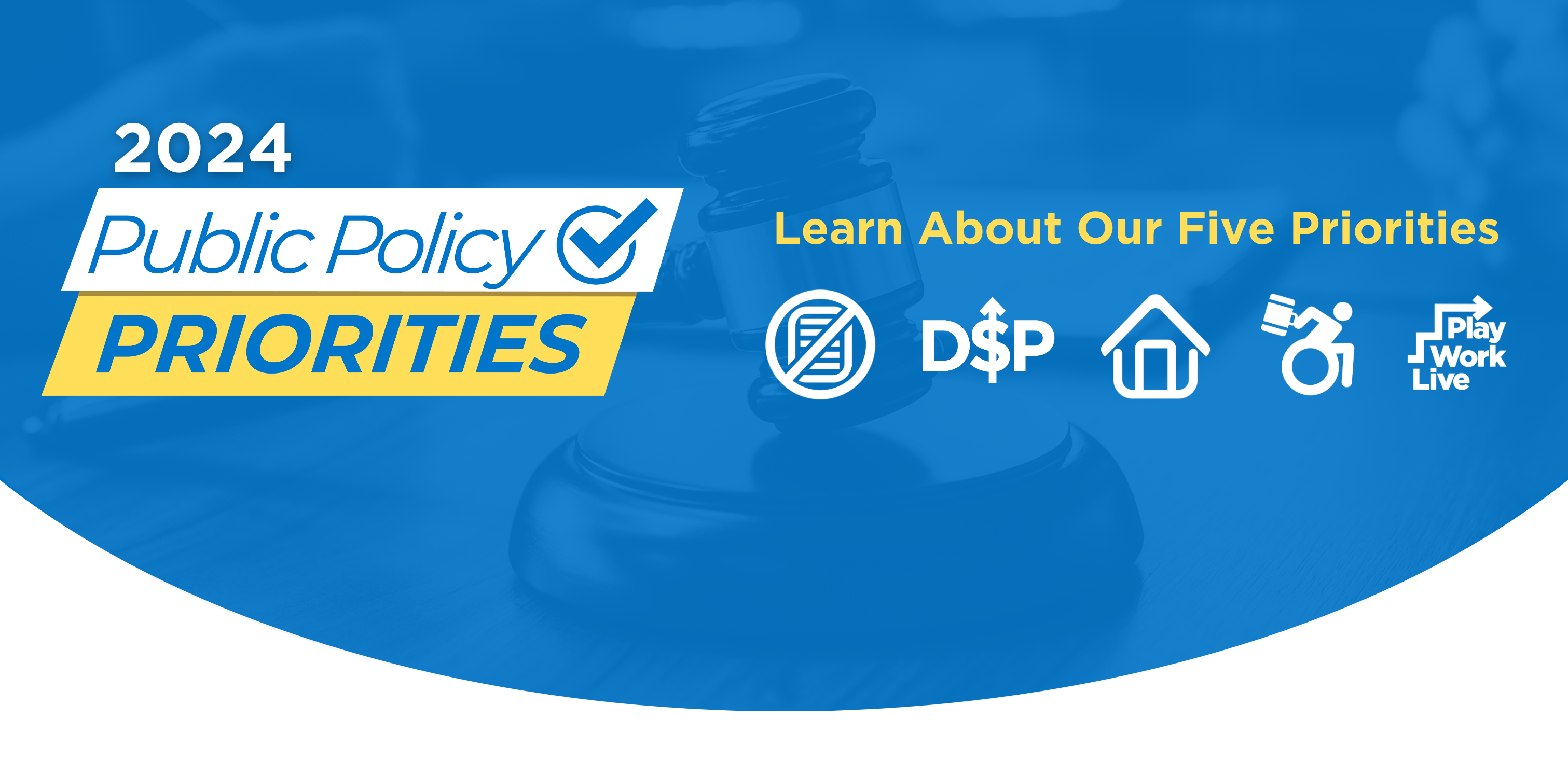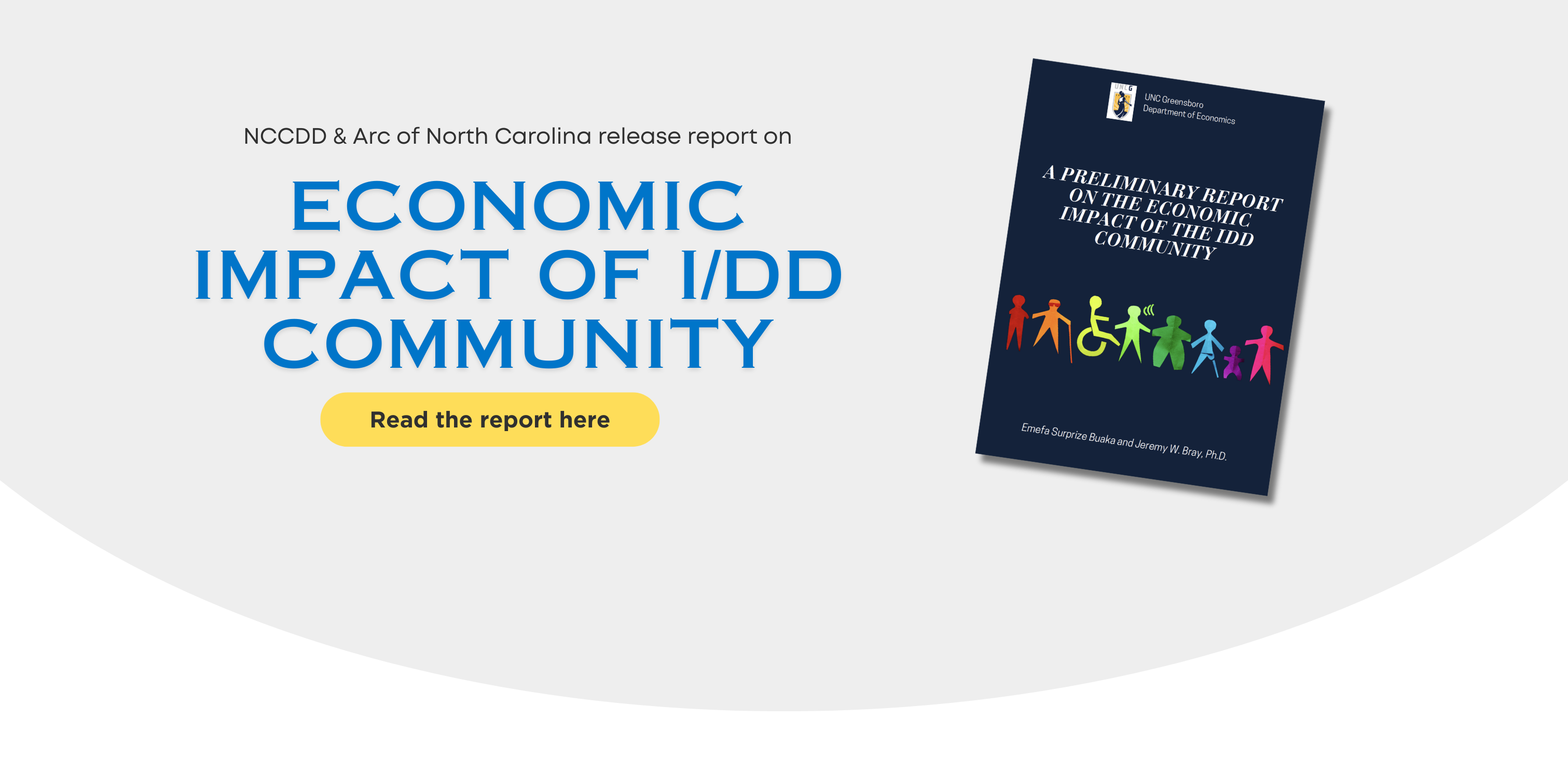
Federal Budget
After a two-week recess, Congress is back in session with a to-do list focused primarily on moving the fiscal year (FY) 2024 appropriations process forward. FY24 negotiations are ongoing after Congress passed and President Joe Biden signed into law in May an agreement to lift the federal debt ceiling in exchange for capping FY24 domestic spending at roughly FY23 levels and allowing a mere 1% growth in FY25, among other harmful provisions.
While major changes to Medicaid were left out of a last-minute deal to address the nation’s debt ceiling, the agreement includes spending caps that are likely to impact disability programs for years to come. The new limits on domestic spending over the next two years will affect a wide range of federal programs for people with disabilities.
The final agreement effectively cuts spending on special education, housing, vocational rehabilitation and many other programs by freezing funding at current levels until fiscal year 2025 when spending would rise just 1%, an increase that doesn’t even account for inflation. This could affect the state Councils on Developmental Disabilities as well.
While the timeline for moving the bills in both chambers is still up in the air, both the House and Senate are expected to release draft budgets in the coming weeks. The Senate is aiming to review and pass all 12 spending bills out of the appropriations committee before Congress adjourns for August recess. Senators and Representatives need to hear how cuts to education, housing, employment, and programs like the NC Council on Developmental Disabilities directly affect people with intellectual and other developmental disabilities (I/DD).
Plain Language: Congress is working on the budget for next year. There is an agreement that Medicaid will not be changed. It is possible that other areas of funding might be cut and could impact the I/DD community. Some areas where budgets could be cut include schools, job programs, housing, and DD Councils. Congress needs to hear from people with disabilities.
Supporting Olmstead
Federal officials are beefing up enforcement of a key U.S. Supreme Court decision that affirmed the rights of people with disabilities to be supported in the community whenever possible. The Office for Civil Rights at the U.S. Department of Health and Human Services said it is launching a new national initiative to “help drive compliance with the integration mandate and protect the rights of people with disabilities.”
The Americans with Disabilities Act, Section 504 of the Rehabilitation Act, and Olmstead have all moved us closer to seeing that people receive services in the most integrated setting that’s appropriate to their needs. However, we know that thousands of people across the nation, and thousands in North Carolina, remain on waiting lists.
The new initiative, announced this month to coincide with the 24th anniversary of the Olmstead decision, will reinvigorate enforcement and compliance efforts at the Office for Civil Rights by addressing complaints received by the office and other barriers to community living, officials said.
Plain Language: The federal Office of Civil Rights is working closely with states to make sure supports exist to help people live in the community.
Supporting Families with Aging Caregivers
Upwards of a million U.S. households include an adult with intellectual and developmental disabilities who’s supported by an aging caregiver and that number is expected to grow. Now, Medicaid officials are making a push to better meet their needs. The Centers for Medicare and Medicaid Services is issuing a collection of new resources to help state Medicaid and partners as they design and deliver services for this burgeoning demographic.
The agency is offering guidance on how states can anticipate the needs of adults with I/DD and their caregivers as they get older and tips on devising policies and practices to support these needs and promote person-centered planning.
Plain Language: The federal government is providing resources and giving guidance to states to help people with I/DD and their families as parents get older.
State
Budget
The General Assembly has not yet come to an agreement on the state budget. The Conference Committee and leadership have been working to resolve differences between the House and Senate budgets. One of the major barriers is related to revenue, which affects the total budget and also includes disagreements on proposed tax cuts. It will likely be late August or September before there is agreement on the final budget.
Plain Language: NC legislature is still working on a plan for spending. The plan may come out in August or September.
1915(i) Approved by Center for Medicare and Medicaid Services (CMS)
1915(i) was approved effective 7/1/23 and below is the Medicaid Bulletin announcing that approval. This is significant because individuals with I/DD who are Medicaid eligible may be able to access these services. 1915(i) will be through Tailored Plans or through Medicaid Direct. The LME-MCOs (Local Management Entities/ Managed Care Organizations) have sent announcements about the new options and the process for accessing.
NC Medicaid Obtains Approval of the 1915(i) State Plan Amendment | NC Medicaid (ncdhhs.gov)
The initial focus will be on transitioning people who currently receive B3 services to 1915(i). Those who are in the Tailored Plan will work with their Tailored Care Manager for assessment, authorization of services, and monitoring of service delivery. This will need to occur by the date of Tailored Plan launch, which has been delayed past the October 1st date. A new date has not been announced. For people who are in Medicaid Direct and receiving B3 services, they will need to transition by July of 2024. People who are not receiving B3 services, but are in need of community supports, should contact LME-MCO Care Coordination to begin the assessment process.
Plain Language: There is a new way to pay for services called 1915(i). People who are enrolled in Medicaid and have an I/DD diagnosis will be able to apply for these services through their Tailored Care Manager or the LME-MCO.
Posting of State-Funded Services
The Division of Mental Health, Developmental Disabilities and Substance Use Services has posted State-Funded service definitions for I/DD and TBI (traumatic brain injury) for your feedback.
This 30-day public comment can be found at https://www.ncdhhs.gov/providers/provider-info/mental-health-development-disabilities-and-substance-abuse-services/service-definitions/proposed-state-funded-service-definition-policies
The posting includes two main topics: Telehealth and Service. There is a description of the services that can be provided through telehealth, as well as guidelines on delivery of services and billing. The posting also outlines that Direct Care services can be provided in alternate settings due to issues related to COVID-19.
The public comment review period is from July 7, 2023 – August 5, 2023 and your feedback can be provided at [email protected].
Plain Language: The state is making some changes to how services can be provided. Some services can now be provided through telehealth like video conferencing. Some services can be provided in alternative places if there are issues related to COVID-19.
Disability Rights North Carolina (DRNC) Report on Engagement
Following the Samantha R. ruling and the discussion regarding Intermediate Care Facilities (ICF) that occurred, DRNC spent some time gathering information from people living in ICFs, family members, providers, and LME-MCOs. The intent was to learn from people’s experiences and identify ways people with I/DD can be supported in the community. A summary of the information that was gathered and subsequent recommendations is on their website.
DRNC Update and Preliminary Observations from ICF Engagement - DRNC (disabilityrightsnc.org)
Plain Language: Disability Rights North Carolina (DRNC) has talked to many people across NC about what is important to them about where they live and how they get their supports. There is a report on the DRNC website about what they learned.
Recent Posts
Message from the Executive Director Public Policy Update (as of…






